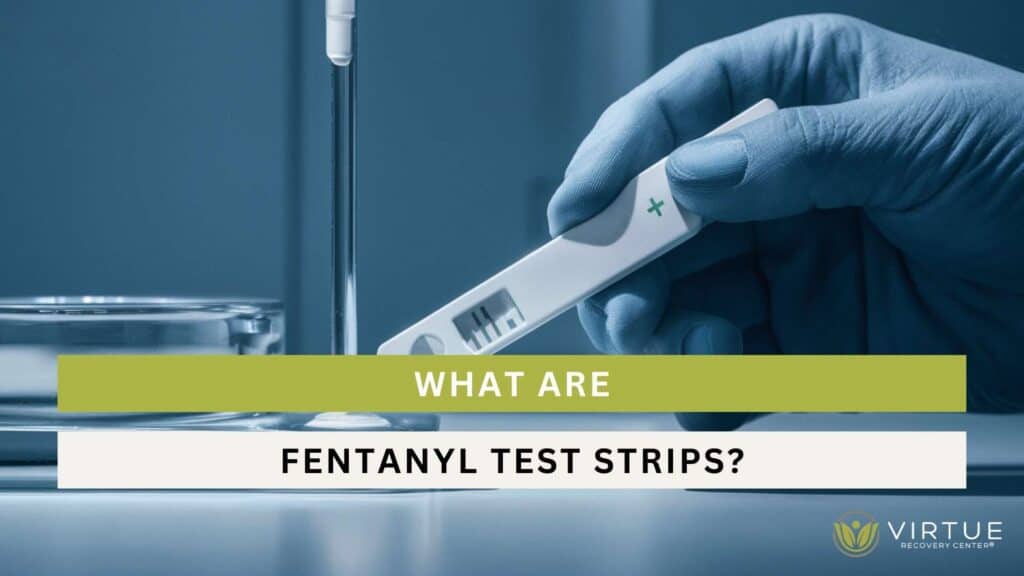
Table of Contents
Key Takeaways
- Understanding what fentanyl test strips are and why they are essential.
- Insight into how these strips can be a critical tool in preventing fentanyl-related overdoses.
- Encouragement for broader adoption and use of fentanyl test strips in communities.
Introduction
The opioid crisis has intensified in recent years, with fentanyl, a powerful synthetic opioid, emerging as a significant public health concern due to its extreme potency and the danger it poses even at very low doses. Fentanyl test strips have become an important harm-reduction tool in response to this continuing crisis. These simple and efficient devices can identify the fentanyl presence in illegal drugs, which gives users vital information that can help them to save their lives.
Understanding Fentanyl
The main hazard of fentanyl is the risk of its accidental intake, as it is fifty times more potent than heroin and one hundred times more potent than morphine. It is so powerful that the likelihood of overdose is higher and, most of the time, fatal. The number of fentanyl deaths is increasing; therefore, the significance of early detection and prevention of fentanyl abuse is emphasized.
What Are Fentanyl Test Strips?
Fentanyl test strips are small pieces of paper coated with chemicals that react specifically to the presence of fentanyl and many of its analogs within a substance. Originally developed for urine drug testing in medical settings, these strips are now utilized outside clinical environments. Users can dissolve a small sample of a drug in water and dip the test strip into the solution; a positive or negative result for fentanyl appears within minutes, much like a pregnancy test.
The Importance of Fentanyl Test Strips
The main benefit of fentanyl test strips is in overdose prevention. The strips allow users to know whether their drugs have fentanyl, therefore, offering a chance for safer decision-making. Research has revealed that if people know that fentanyl is present, they will take precautions such as using less, using in the presence of others, or not at all.
How to Use Fentanyl Test Strips
To use fentanyl test strips effectively:
- Prepare the sample: Combine a tiny portion of the drug with water in a vessel.
- Test the sample: Immerse the test strip into the solution for the duration indicated by the product directions.
- Read the result: When the waiting period is over, a set of lines will appear on the strip to report the presence of fentanyl.
- Interpret the results: One line on the strip usually indicates that fentanyl is present; two lines typically mean that it is not. Nevertheless, instructions may differ. Hence, adhering to the particular guidelines that come with the strips is crucial.
Legal and Health Considerations
Despite fentanyl test strips being legal in many places, in some jurisdictions, they are still considered drug paraphernalia. This kind of classification can limit their availability and make people avoid using them because of the threat of legal action. Health-wise, though the strips are a critical harm reduction tool, they are not perfect and should be regarded as part of a holistic approach that includes naloxone and addiction treatment services.
Challenges and Controversies
Some individuals are against the availability of fentanyl test strips, as they think that they may promote drug use. Nevertheless, harm reduction advocates assert that the main aim is to preserve lives rather than eradicate drug use. These strips empower people with the information to make wise decisions regarding their drug use in a fentanyl-laden world.
Promoting Wider Adoption
Policy advocacy is vital in making fentanyl test strips more accessible and legal. Activities comprise lobbying for changes at local and national levels, educating policymakers on the advantages of the strips, and reclassifying them from drug paraphernalia to life-saving tools.
Conclusion
Fentanyl test strips are a simple yet powerful tool in the fight against the opioid epidemic. They have the potential to significantly reduce the risk of overdose by providing crucial information about drug content. As the crisis involving fentanyl continues to evolve, it is imperative that harm reduction tools like fentanyl test strips become more widely accepted and available. If you or someone you know is struggling with addiction, don’t hesitate to reach out to Virtue Recovery Center at 866-461-3339 for support.
Find Drug Rehab and Detox Treatment Centers Near You
Find facilities that specialize in addiction treatment

FAQs
Are fentanyl test strips reliable?
Yes, they are highly reliable when used correctly, but it is essential to follow the instructions carefully.
Can fentanyl test strips detect all forms of fentanyl?
They are designed to detect fentanyl and most of its known analogs, but new analogs may not always be detectable.
Where can I obtain fentanyl test strips?
They can be purchased online, at some pharmacies, or through community health organizations.
Is it legal to carry fentanyl test strips?
The legality varies by location. It’s important to check local laws regarding the possession of such items.
Can using fentanyl test strips reduce drug use?
While the primary purpose is to reduce overdoses, awareness of fentanyl’s presence can lead to more cautious use, potentially reducing consumption.
Resources
https://www.nyc.gov/assets/doh/downloads/pdf/basas/fentanyl-test-strips-brochure.pdf
https://www.cdc.gov/stopoverdose/fentanyl/index.html
Are You Covered For Treatment?
At Virtue Recovery Center, we understand the importance of accessible care. That’s why we’re in-network with numerous private insurance companies, ensuring that your journey to recovery is supported from the start. Let us help you quickly and easily verify your insurance coverage. Begin your path to healing today.
- About the Author
- Latest Posts
Gigi Price( Clinical Director )
Gigi Price holds licenses as a Master Social Worker and Clinical Drug Counselor. She completed her master’s degree in Social Work at Texas State University. Over the last decade, Gigi has been dedicated to utilizing evidence-based practices to enhance patient care and treatment planning, resulting in positive, long-term outcomes for patients and their families. Her passion lies in creating a treatment environment where professionals collaborate to bring about positive change and provide a safe, trustworthy therapeutic experience. Patients can be confident in receiving top-quality care under her leadership.
In her role as the Clinical Director of Virtue Recovery Houston, Gigi conducted research to identify the most effective approaches for treating patients with acute mental health diagnoses, PTSD, and Substance Use Disorder. She then assembled a team of skilled clinicians who could offer various therapeutic modalities, such as Cognitive Behavioral Therapy (CBT), Dialectical Behavioral Therapy (DBT), Acceptance and Commitment Therapy (ACT), Somatic Exposure, Eye Movement Desensitization and Reprocessing (EMDR), and Cognitive Processing Therapy (CPT). Gigi takes pride in overseeing the development and implementation of Virtue Houston’s Treatment Program, which includes two specialized therapeutic curricula tailored to the unique needs of individuals struggling with mental health issues, addiction, and PTSD.
- About the Author
- Latest Posts
Gigi Price( Clinical Director )
Gigi Price holds licenses as a Master Social Worker and Clinical Drug Counselor. She completed her master’s degree in Social Work at Texas State University. Over the last decade, Gigi has been dedicated to utilizing evidence-based practices to enhance patient care and treatment planning, resulting in positive, long-term outcomes for patients and their families. Her passion lies in creating a treatment environment where professionals collaborate to bring about positive change and provide a safe, trustworthy therapeutic experience. Patients can be confident in receiving top-quality care under her leadership.
In her role as the Clinical Director of Virtue Recovery Houston, Gigi conducted research to identify the most effective approaches for treating patients with acute mental health diagnoses, PTSD, and Substance Use Disorder. She then assembled a team of skilled clinicians who could offer various therapeutic modalities, such as Cognitive Behavioral Therapy (CBT), Dialectical Behavioral Therapy (DBT), Acceptance and Commitment Therapy (ACT), Somatic Exposure, Eye Movement Desensitization and Reprocessing (EMDR), and Cognitive Processing Therapy (CPT). Gigi takes pride in overseeing the development and implementation of Virtue Houston’s Treatment Program, which includes two specialized therapeutic curricula tailored to the unique needs of individuals struggling with mental health issues, addiction, and PTSD.
How Cognitive Behavioral Therapy Supports Lasting Sobriety After Cocaine Addiction …
How an Eating Disorder Program Helps Manage Binge-Eating Episodes Key …
Key Takeaways Regular exercise reduces cravings and withdrawal symptoms. Physical …
Key Takeaways Veterans Day began as Armistice Day in 1918 …
Key Takeaways Proper nutrition plays a vital role in addiction …
Key Takeaways Long-term sobriety is achievable with evidence-based addiction treatment …


























